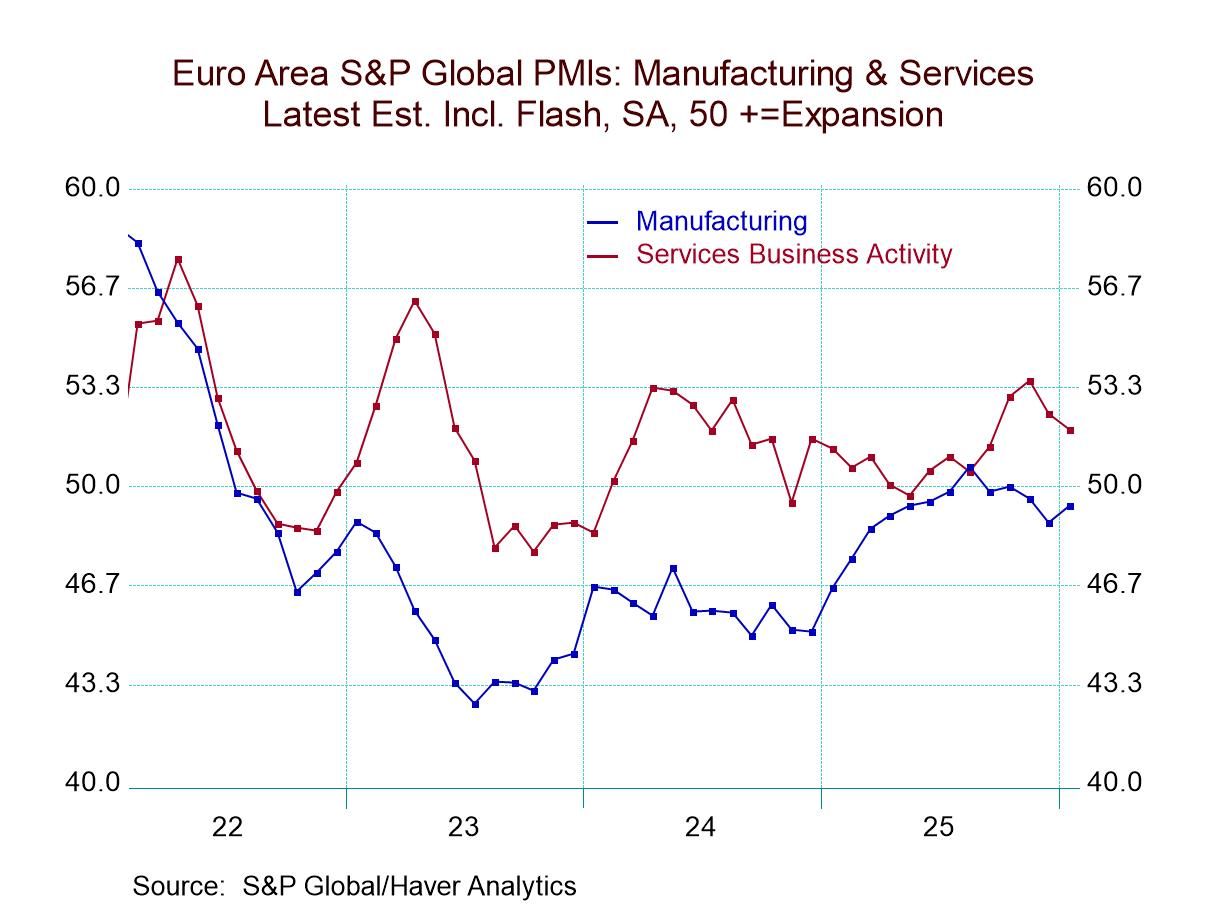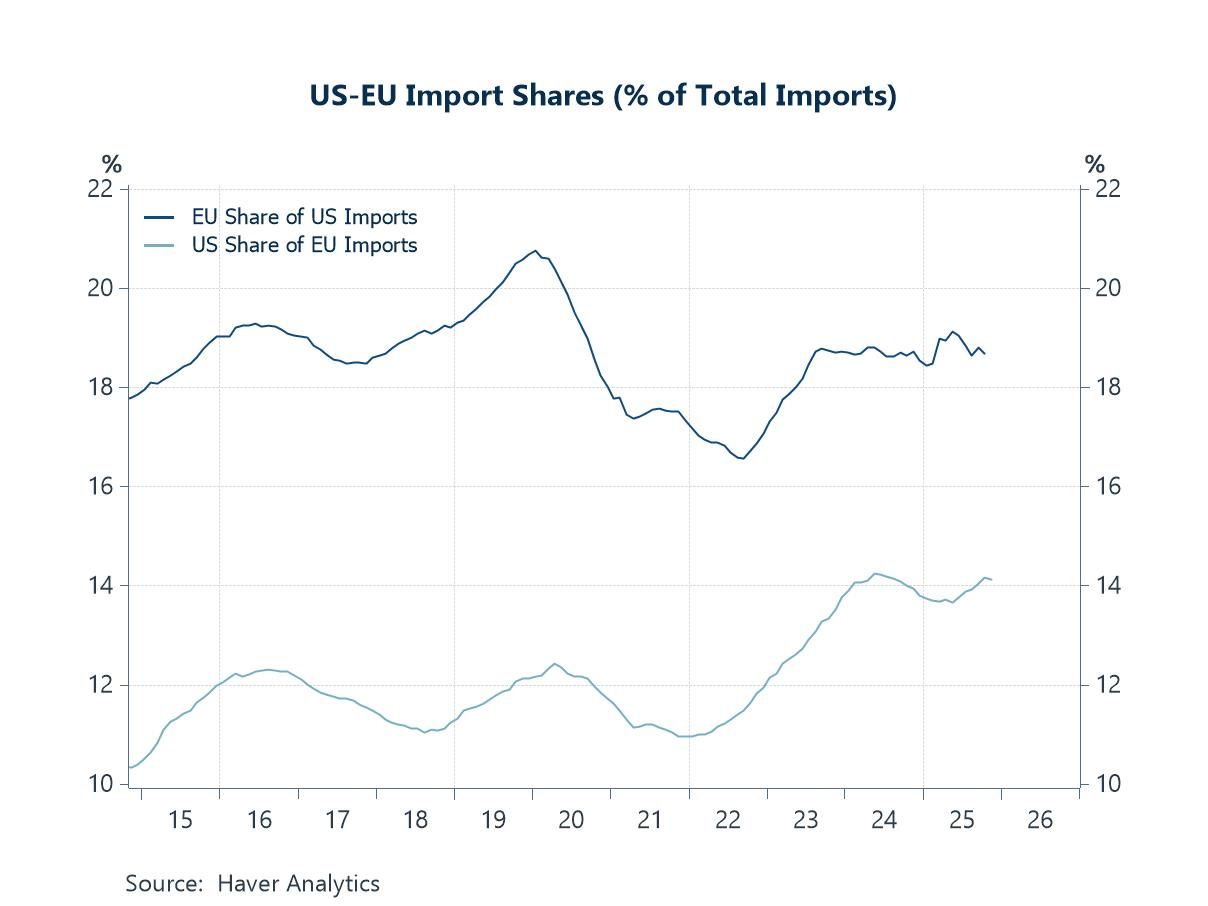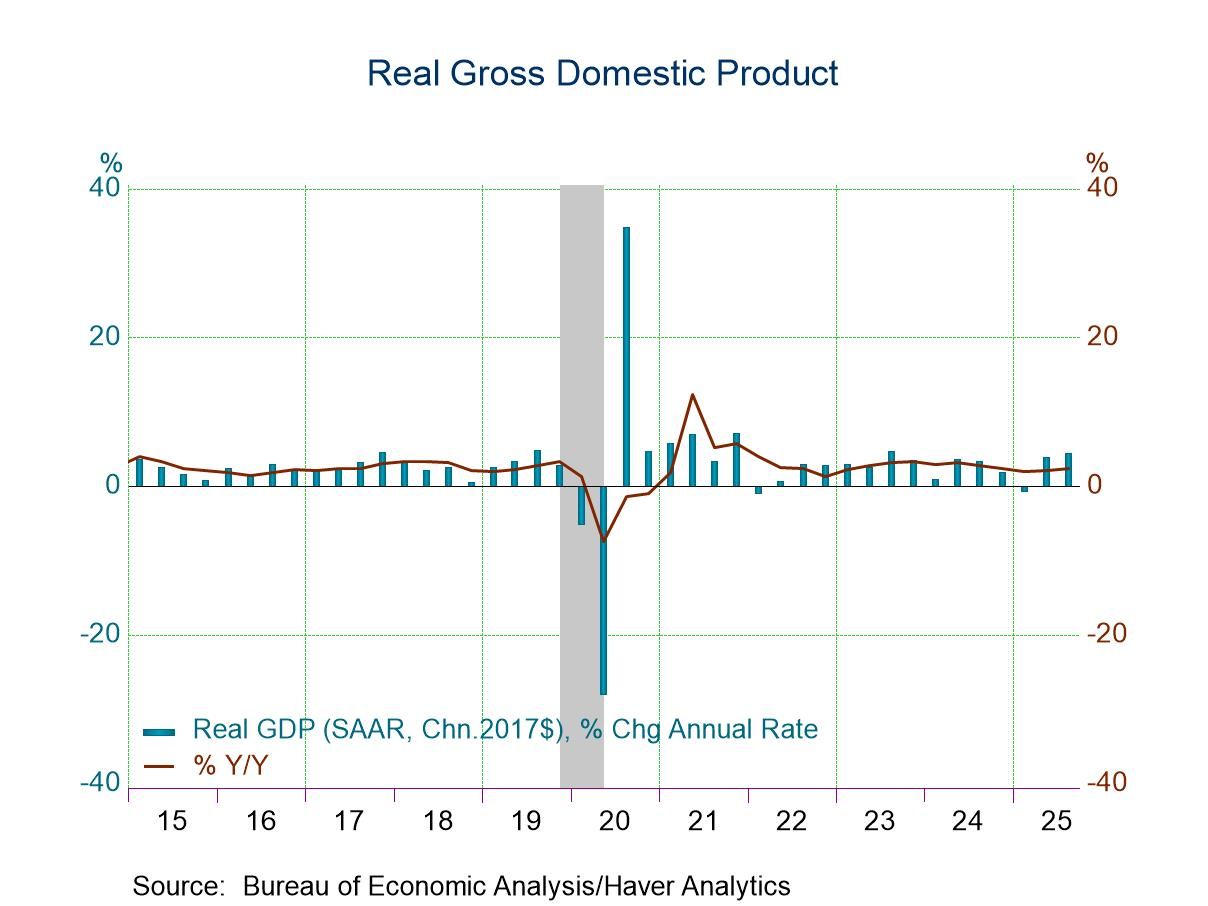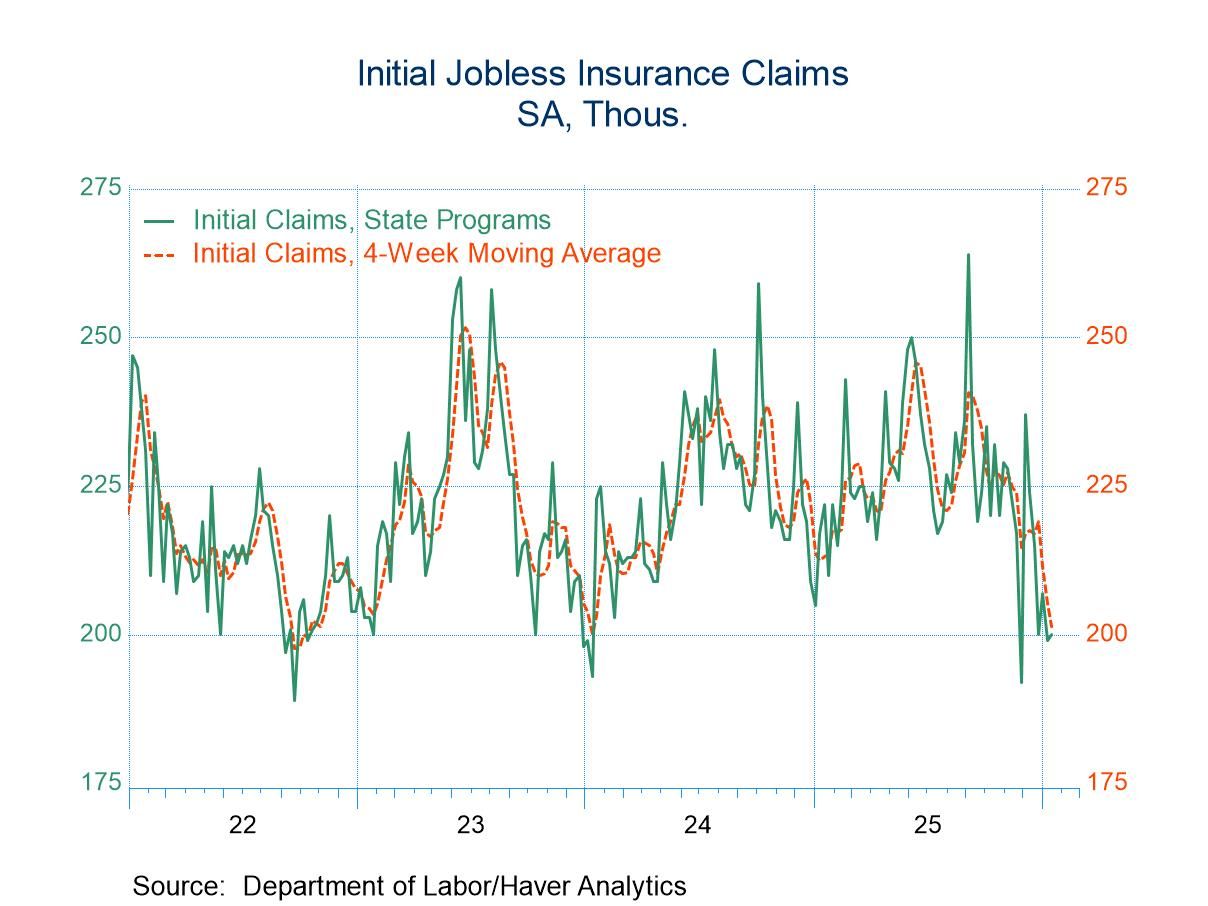 Global| Jul 06 2011
Global| Jul 06 2011Germany Stands On Its Own Two Feet, But Can It Pull?
Summary
German foreign orders have shrunk in May as German domestic orders have spurted. Monthly disconnects occur in this series but this one is very large. With this month’s results the domestic orders are now carrying the burden of German [...]
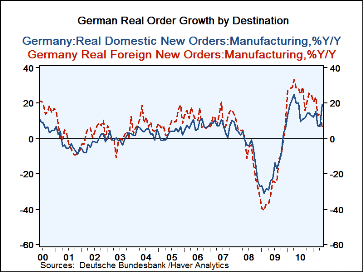 German foreign orders have shrunk in May as German domestic orders have spurted. Monthly disconnects occur in
this series but this one is very large. With this month’s results the domestic orders are now carrying the
burden of German orders growth; domestic orders have grown faster than foreign orders (Yr/Yr) for three months
in a row. Over three months foreign orders are down at a 20% annual rate while domestic orders are expanding
at a 50% pace helping overall orders to advance at about an eight percent pace. Similarly over six-months
foreign orders are lower and domestic orders are up. Over twelve months both series are advancing but
domestic orders are up at about three-times the pace of foreign orders. This is the largest margin for
domestic orders to exceed foreign orders in well over a decade.
German foreign orders have shrunk in May as German domestic orders have spurted. Monthly disconnects occur in
this series but this one is very large. With this month’s results the domestic orders are now carrying the
burden of German orders growth; domestic orders have grown faster than foreign orders (Yr/Yr) for three months
in a row. Over three months foreign orders are down at a 20% annual rate while domestic orders are expanding
at a 50% pace helping overall orders to advance at about an eight percent pace. Similarly over six-months
foreign orders are lower and domestic orders are up. Over twelve months both series are advancing but
domestic orders are up at about three-times the pace of foreign orders. This is the largest margin for
domestic orders to exceed foreign orders in well over a decade.
As debt problems have spread in the Euro-Area Germany’s success in getting overseas orders has slipped. With the new Moody’s downgrade of Portugal it is clear that the Euro debt situation is about much more than Greece. With Greece’s situation off the front burner there is always someone else to take its place on the Euro-debt hot-seat. Indeed, the ruling by Moody’s which looked at the handling of the debt crisis and plan to make lenders share the burden of failing debtors is behind the downgrade. That makes it makes it pretty clear that the factors that led to a downgrade of Portugal could easily become operative elsewhere. The Zone is at risk.
But as of May the German economy is still a strong spot in a weak zone. German real sector MFG sales were mixed this month and did fall overall. But in the quarter-to-date they are still rising at a 6.9% annual rate. Overall orders are still advancing in the quarter at a 12.8% annual rate with foreign orders contracting and domestic orders up at a very strong 37% annual rate. The German domestic economy is now carrying the load not the foreign orders. Germany therefore seems to be entering a phase when growth will not be led or even augmented by exports. Will this make Germany and engine of growth to help support the rest of the Zone? Time will tell.
| German Orders and Sales By Sector and Origin | ||||||||
|---|---|---|---|---|---|---|---|---|
| Real and SA | % M/M | % SAAR | ||||||
| May-11 | Apr-11 | Mar-11 | 3Mo | 6Mo | 12Mo | YrAgo | QTR-2 Date |
|
| Total Orders | 1.8% | 2.9% | -2.7% | 7.9% | 13.3% | 12.2% | 24.2% | 12.8% |
| Foreign | -5.8% | 3.5% | -2.9% | -19.8% | -5.1% | 6.4% | 28.3% | -4.4% |
| Domestic | 11.3% | 2.2% | -2.6% | 50.8% | 39.4% | 19.0% | 19.7% | 37.5% |
| Real Sector Sales | ||||||||
| MFG/Mining | -1.1% | 1.0% | 1.0% | 3.8% | 2.8% | 6.2% | 12.6% | 6.7% |
| Consumer | -4.5% | 3.8% | 2.2% | 5.1% | 1.5% | 1.8% | 1.8% | 17.8% |
| Cons Durables | -1.4% | 1.3% | 4.1% | 16.9% | 11.6% | 6.0% | 10.1% | 15.0% |
| Cons Non-Durable | -5.1% | 4.3% | 1.8% | 3.0% | -0.2% | 1.0% | 0.6% | 18.6% |
| Captial Gds | -0.9% | -0.5% | 1.6% | 0.7% | -5.8% | 5.9% | 14.2% | -1.5% |
| Intermediate Gds | 0.2% | 1.2% | 0.3% | 7.0% | 14.3% | 9.4% | 18.0% | 11.3% |
| All MFG-Sales | -0.9% | 0.9% | 1.1% | 4.5% | 3.2% | 6.3% | 12.8% | 6.9% |
Robert Brusca
AuthorMore in Author Profile »Robert A. Brusca is Chief Economist of Fact and Opinion Economics, a consulting firm he founded in Manhattan. He has been an economist on Wall Street for over 25 years. He has visited central banking and large institutional clients in over 30 countries in his career as an economist. Mr. Brusca was a Divisional Research Chief at the Federal Reserve Bank of NY (Chief of the International Financial markets Division), a Fed Watcher at Irving Trust and Chief Economist at Nikko Securities International. He is widely quoted and appears in various media. Mr. Brusca holds an MA and Ph.D. in economics from Michigan State University and a BA in Economics from the University of Michigan. His research pursues his strong interests in non aligned policy economics as well as international economics. FAO Economics’ research targets investors to assist them in making better investment decisions in stocks, bonds and in a variety of international assets. The company does not manage money and has no conflicts in giving economic advice.



